Gallery
A showcase of Hornby O Gauge, Dublo and tinplate from our members.
Hornby O Gauge
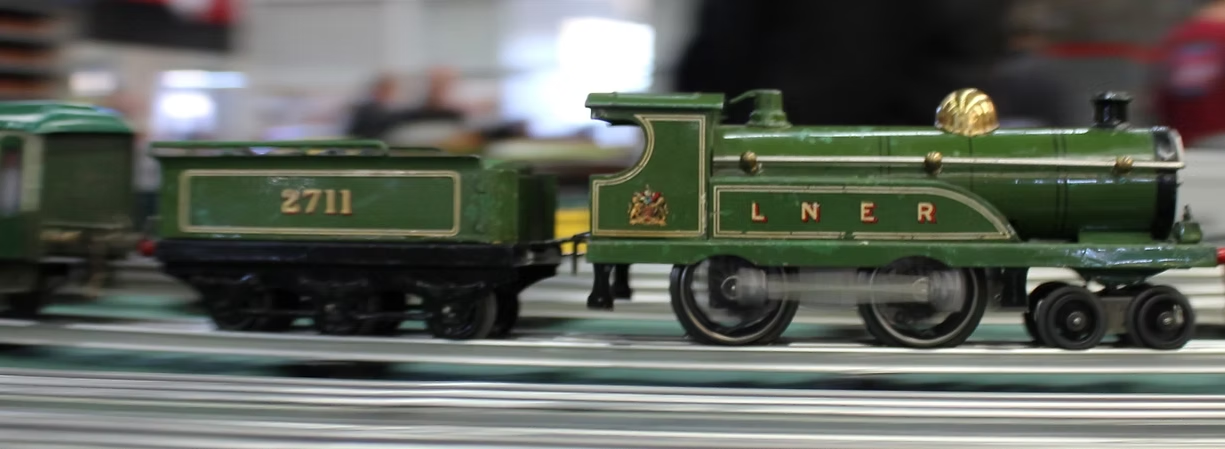
Hornby No.2 locomotive (fitted with a modern DC electric mechanism). The No.2 locomotive (numbered 2711) was introduced in 1923.
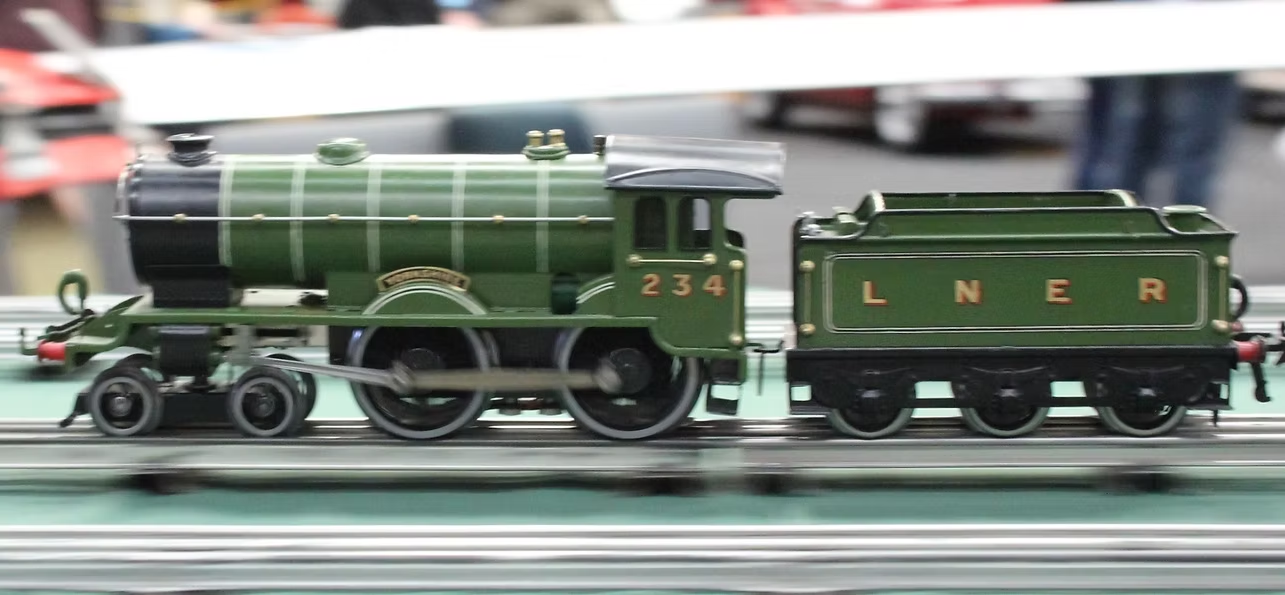
A No.2 Special 201 'Yorkshire' produced by Hornby from 1929 and based on Gresley's D49/1 4-4-0 Shire Class, of which 28 were built between 1927 and 1929. The LNER went on to produce also produced 42 D49/2 versions with different valve gear from 1929-1935 named after fox hunts. Hornby followed suit in 1935 producing No. 201 'Bramham Moor'.
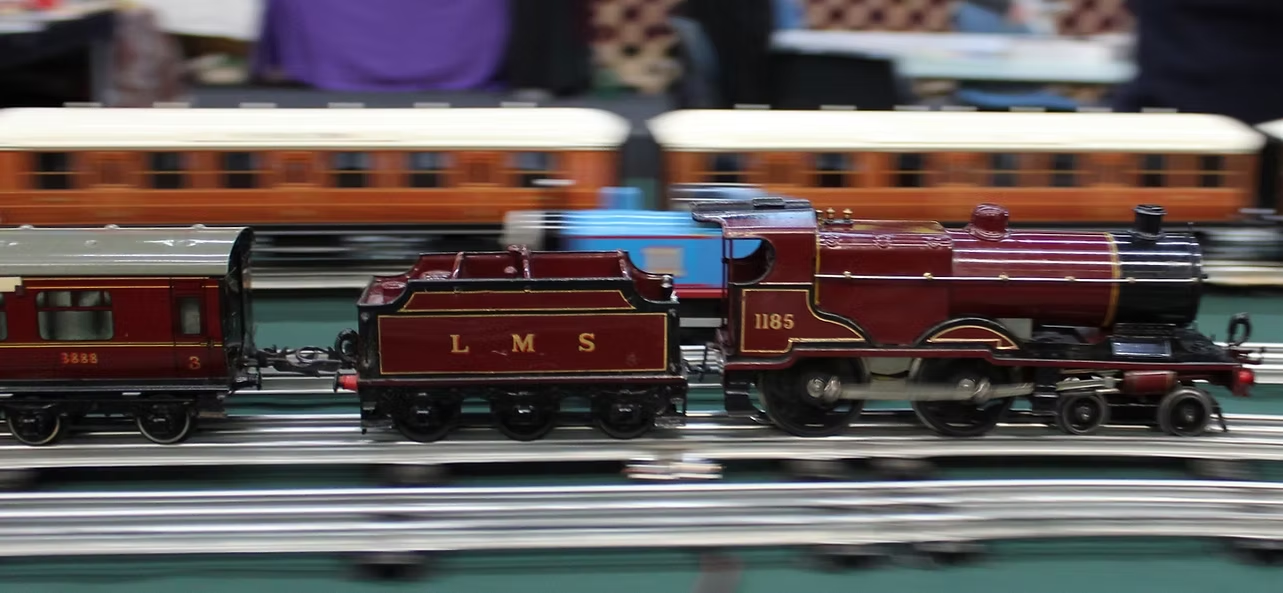
The No. 2 Special Midland Compound was introduced from 1929. There were a few livery alterations and a change to the cab roof in the succeeding years and this example (with modern DC motor) is from the transition between the old and new cab roof styles c1931.
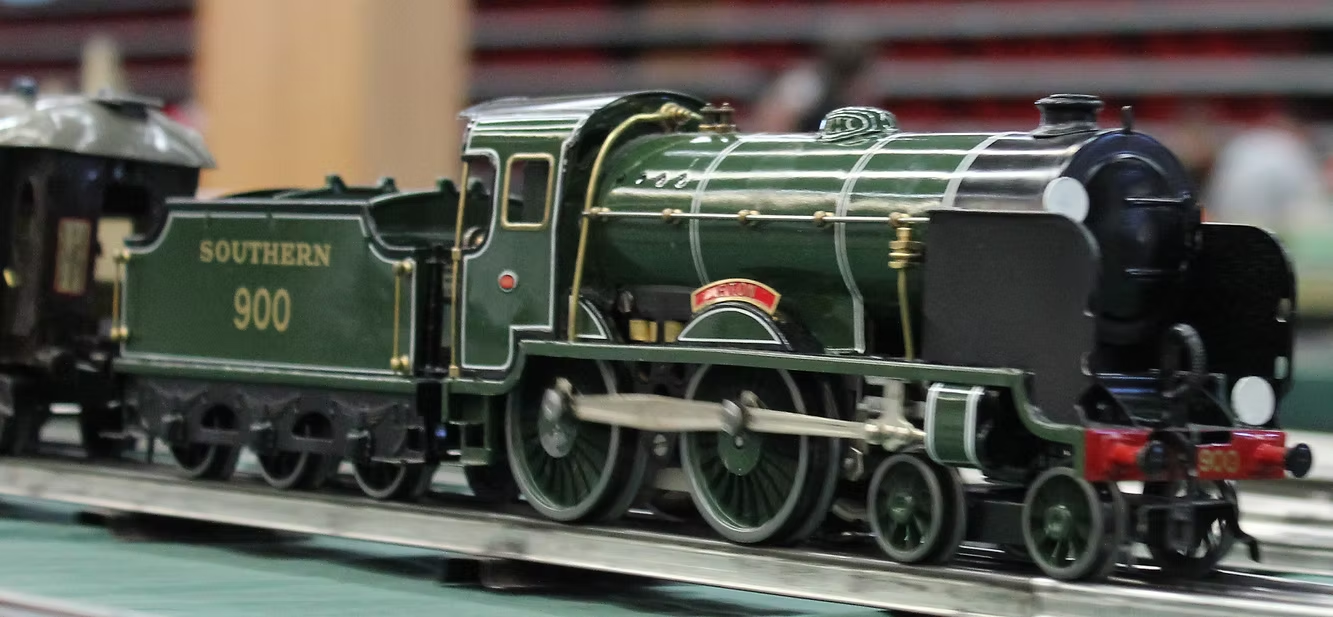
The Hornby No 4 Schools Class locomotive Eton also appeared in 1937, in both clockwork and electric versions. Eton was the first member of 40 SR Schools Class 4-4-0s constructed from 1930-35.
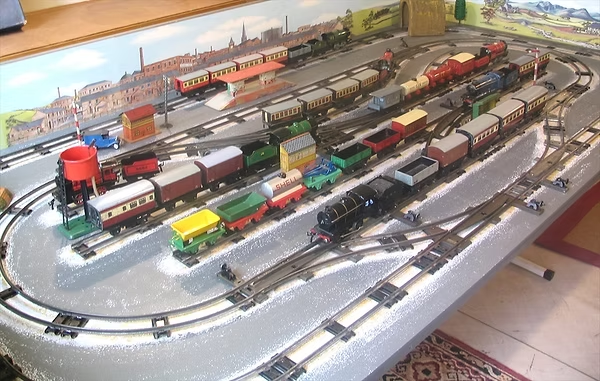
Hornby never forgot about the toy end of the market and produced a wide range of cheaper O gauge clockwork trains with 1-foot radius track. The smallest were the M0/M1 locos and rolling stock shown here.
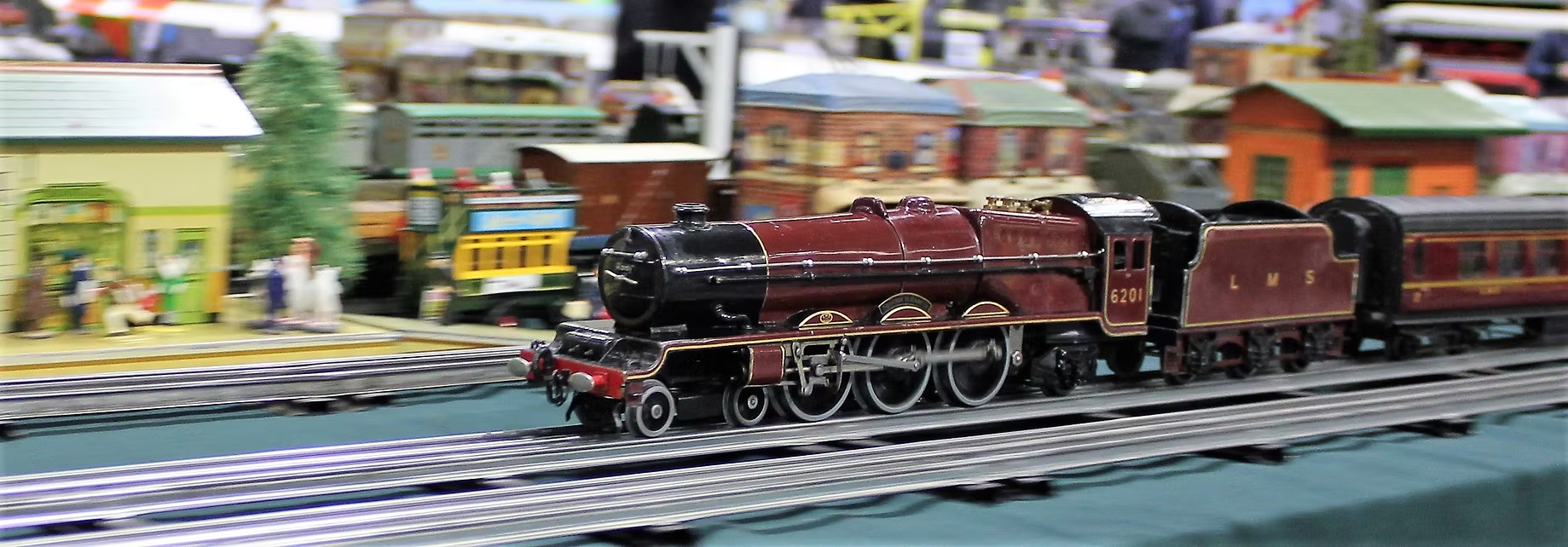
The Princess Elizabeth was the only 6-coupled locomotive produced by Hornby, although if WWII had not intervened it is likely that further models would have emerged.
Hornby Dublo

A lineup of Hornby Dublo cast metal passengers on a busy platform.
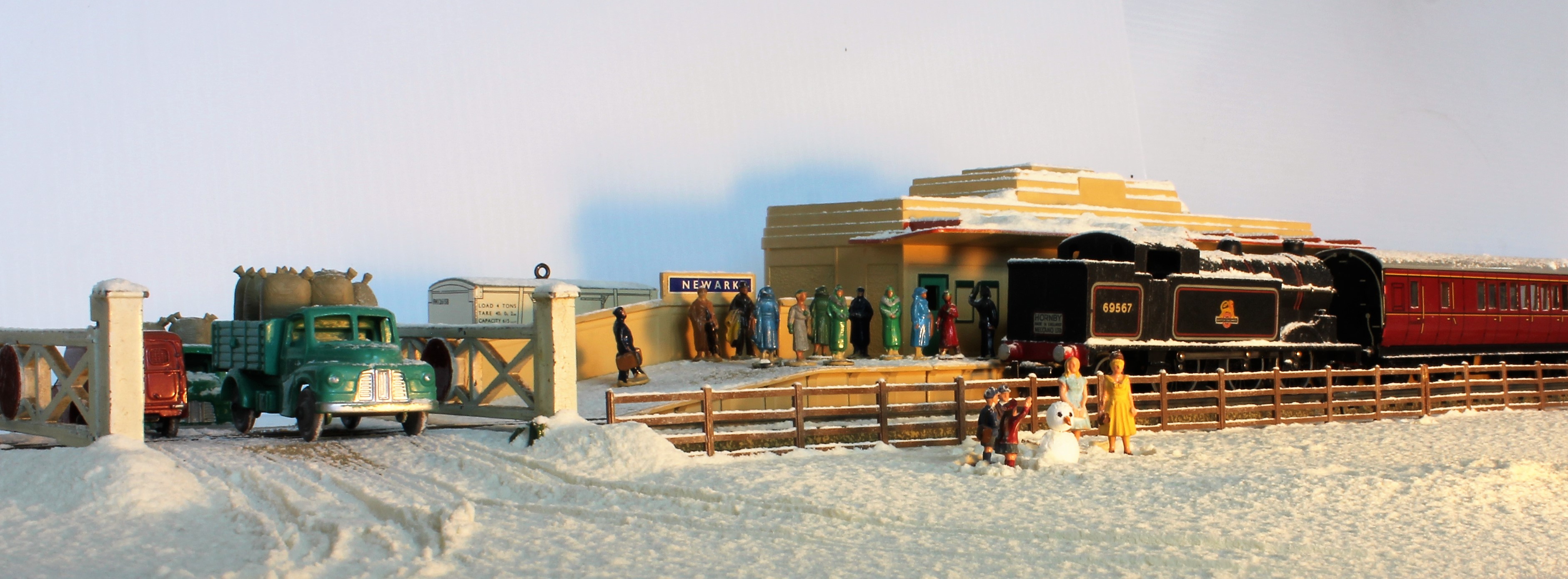
Hornby Dublo vehicles, station, passengers and 0-6-2T at Christmas.
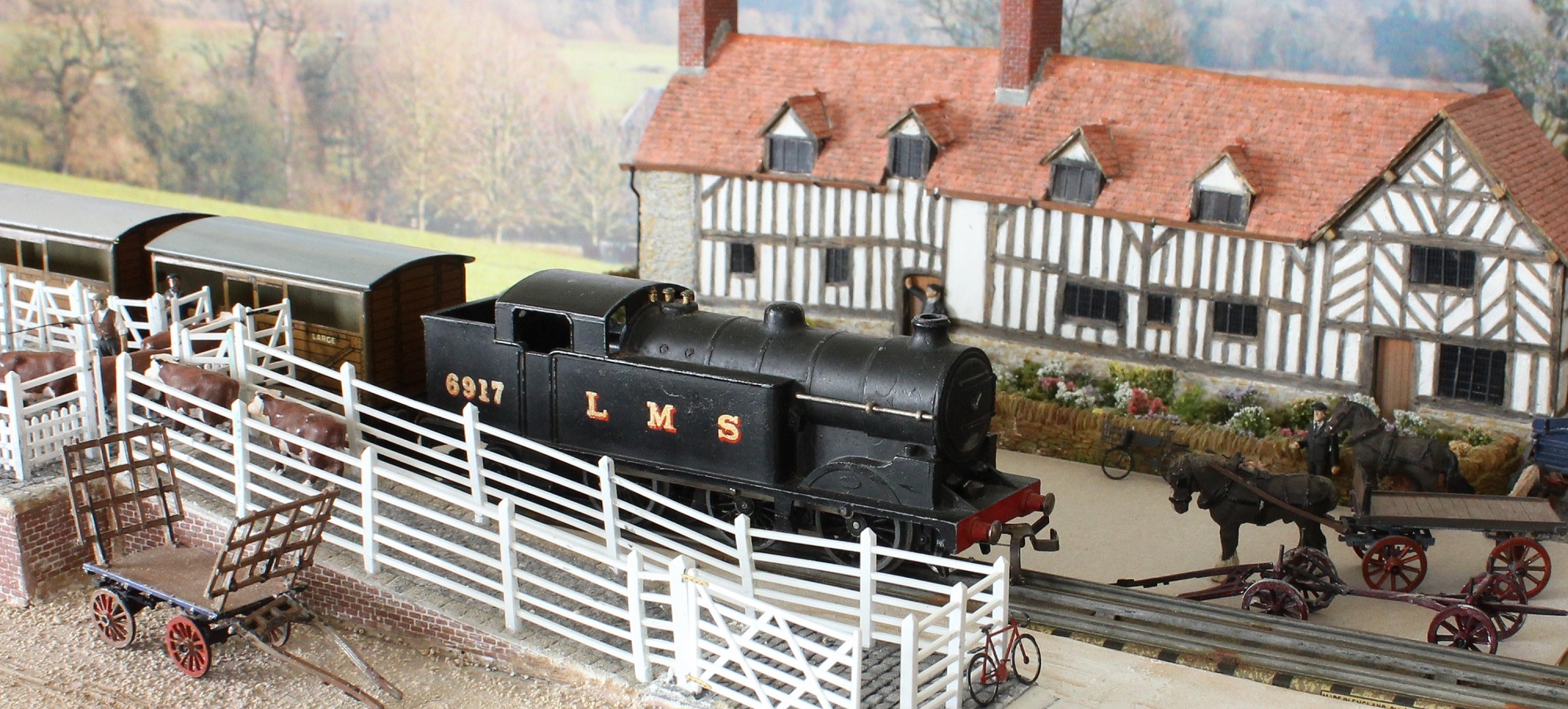
Immediate post-war Hornby Dublo LMS 0-6-2 Tank and cattle wagons.
Literature
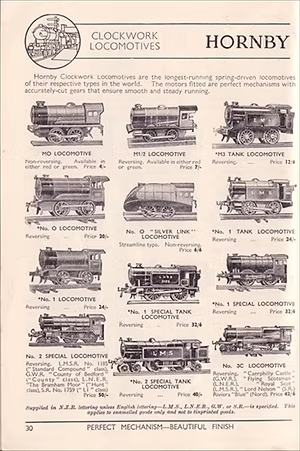
Clockwork locomotives available in the 1937 Hornby catalogue.
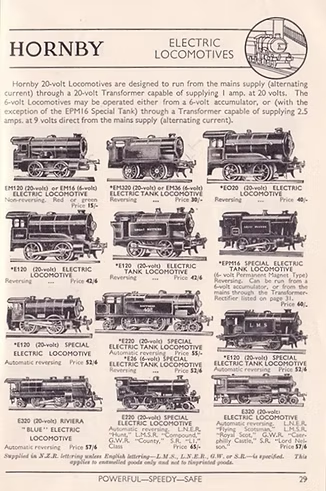
Electric locomotives available in the 1937 Hornby catalogue.
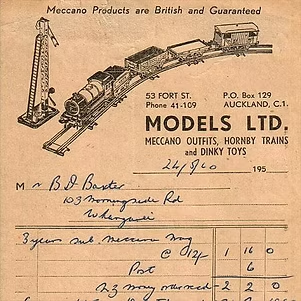
Models Limited were the New Zealand importers of Hornby and Meccano. Bruce Baxter was instrumental in the early days of the HRCA and this is his subscription to the Meccano Magazine.
New Zealand & Australia
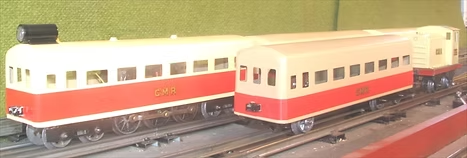
Donald Cranko arrived in New Zealand from South Africa after WW1 and established a small engineering and manufacturing business in Havelock North in about 1946. He produced a range of steam and electric powered toys, using the brand 'Movie Models'. The range included traction engines, road rollers and O Gauge locomotives. Production ceased around 1957.
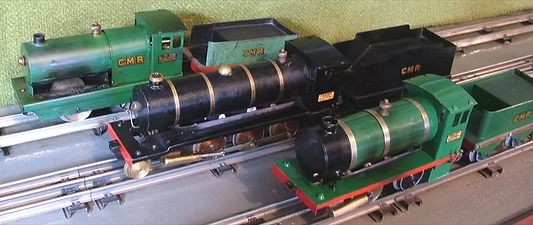
Cranko made three types of methylated spirits fired steam locomotives. The earliest (front) had twin cylinders and was replaced in the early 1950s by the 2-6-0 Mogul and finally the simple `Mighty Atom` which had a single cylinder and flywheel in the cab with a gear drive to the rear axle.
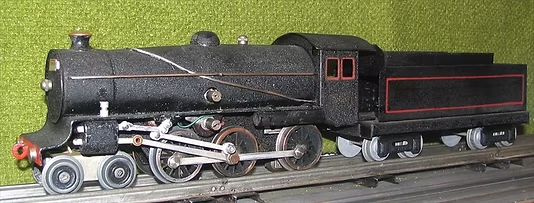
Ferris Bros Pty. Limited of East Sydney are well known for their car radios, produced from 1936 until 1968, but they also produced O gauge trains between 1948 and 1958. They manufactured about 1500 of these C36 class steam locomotives (https://ma.as/44983).
European Vintage
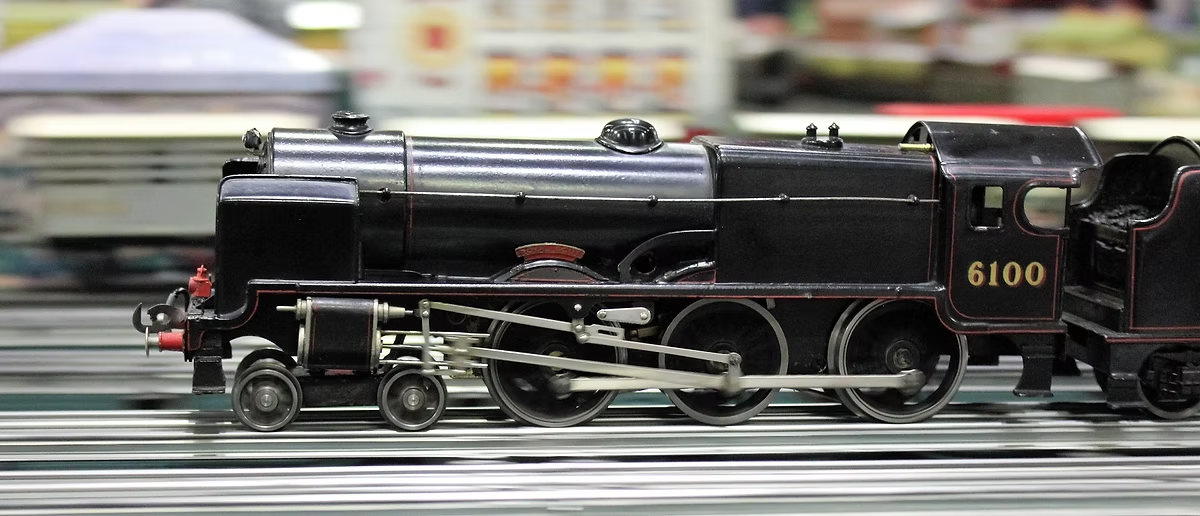
Established in 1899 Bassett Lowke (B-L) initially imported model trains from the large German manufacturers Bing, Georges Carette and Märklin. George Winteringham joined B-L in 1902 and ran their Northampton factory. After WW1 B-L acquired Carrette's tools and gradually produced more 'mass-market' British outline models including this 3-rail electric Royal Scot.
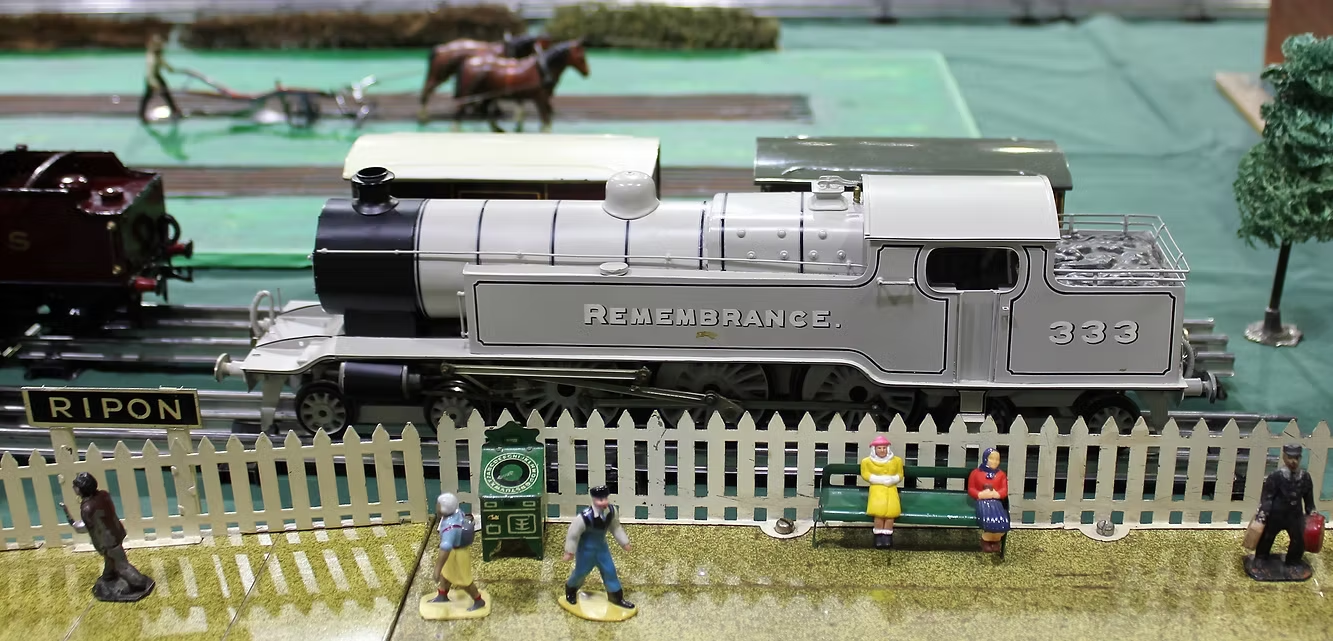
This model represents the last of this class of 7 Baltic Tanks built by the LBSCR at Brighton works in 1922. Finished in grey lined livery this was Brighton's War Memorial engine and carried a commemorative plaque in remembrance to over 500 employees who gave their lives in the Great War.

Märklin made the HR 66/12920 O gauge 20 Volt electric locomotive from 1932 until 1954. The first versions were green, but from mid-1933 they were black. This example is post-1938.
ACE, Darstaed & WJ Vintage
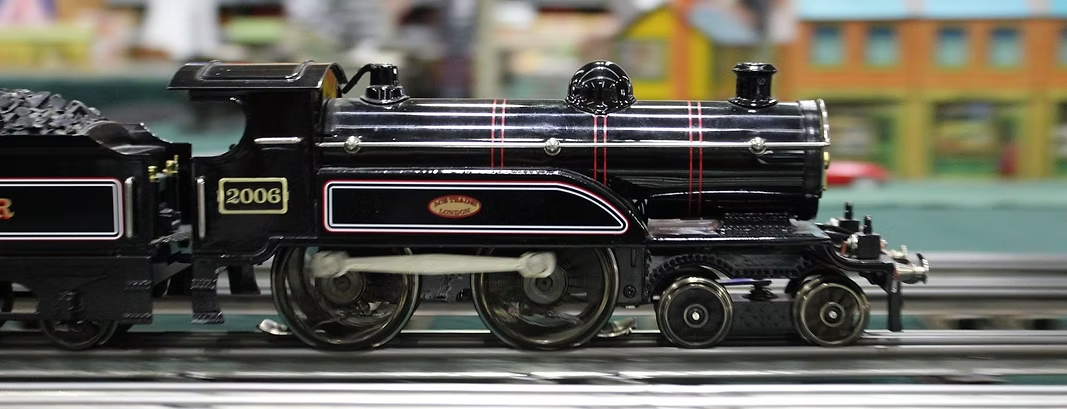
ACE Trains (London) started in 1995 as a partnership between Andries Grabowsky and Alan Levy to produce O Gauge British outline trains. Grabowsky has since departed to reestablish the Darstaed brand. This is an E/3 4-4-0 locomotive in the style of the Hornby No.2 produced in the 1920s.
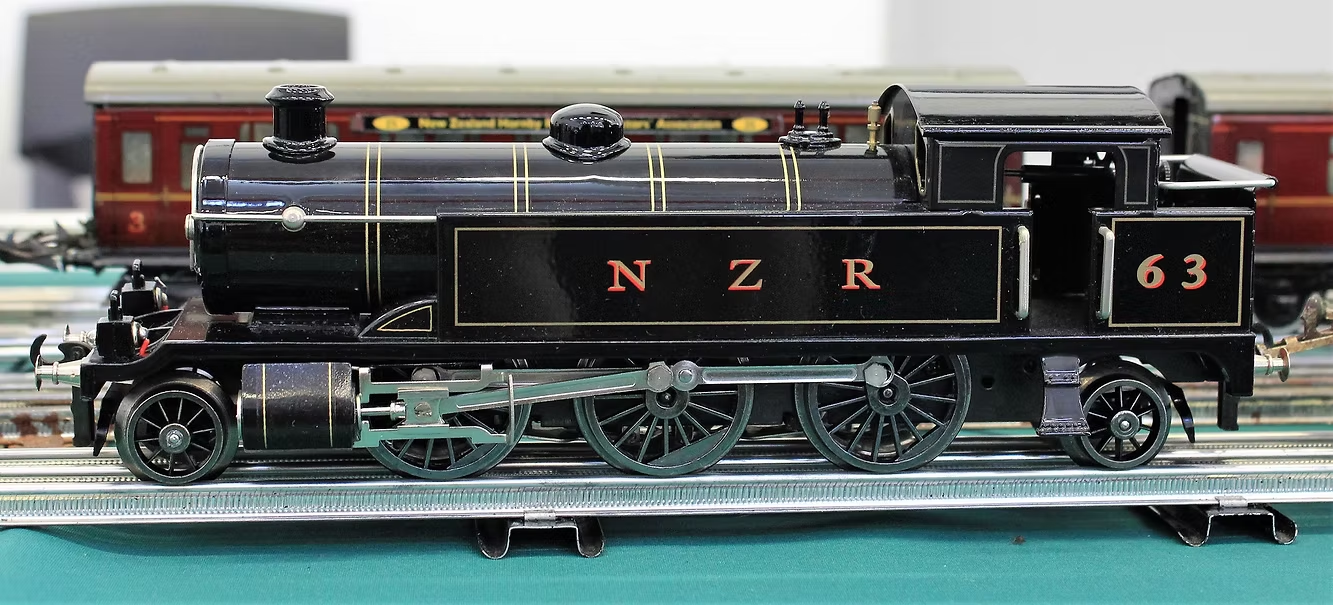
Darstaed 2-6-2 Tank in NZR livery.
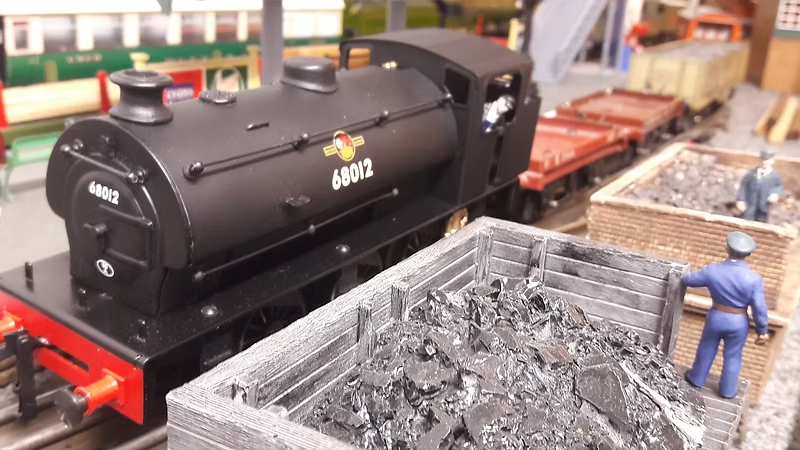
W J Vintage J94 (Austerity) Saddle Tank. The LNER purchased 75 former "Austerity" 0-6-0STs from War Department in 1946.
